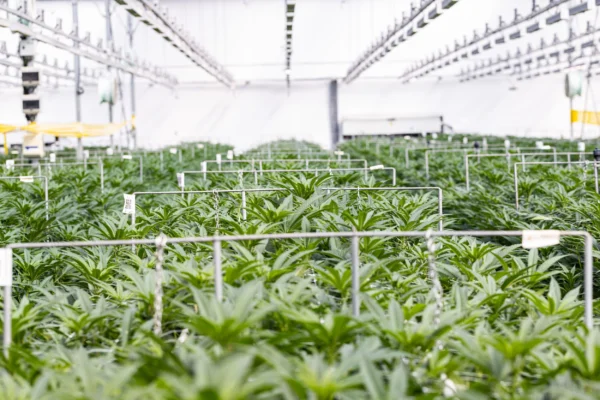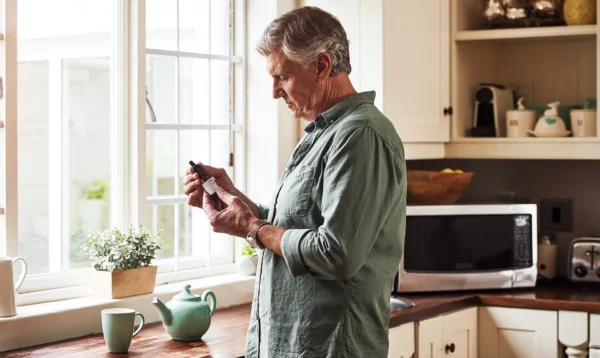The landscape of medical cannabis is ever-evolving, driven by new regulations, growing research, and shifting attitudes. In 2024 important developments have been made, from global shifts in cannabis legislation to new insights into its potential uses and risks. In this blog, we’ll highlight the key legislative changes and the latest research, and what these changes mean for the future of medical cannabis.
Cannabis in the News
Cannabis continues to make headlines around the world, with major policy shifts abroad to the expanding medical cannabis sector in the UK, these updates reflect the complexities of the cannabis landscape.
Key UK Headlines
The UK’s medical cannabis industry continues to grow. As patient numbers steadily rise, industry experts, including Curaleaf Managing Director in the UK, acknowledge consistent monthly growth1. Jonathan Hodgson explains, “It’s sometimes difficult to get the total picture in a new industry, but most people agree it’s growing every month.” Chronic pain remains the most common reason for a prescription according to data from the UK Medical Cannabis Registry, however, prescribing for other conditions is also on the rise. This highlights the burden of unmet health needs in the UK at present and the role medical cannabis is currently playing for tens of thousands of patients.
Despite being a focus of rescheduling in 2018, in 2024 campaign groups are still having to campaign for improved NHS access to medical cannabis for epilepsy 2. Families of children with treatment-resistant epilepsy continue to advocate in Parliament, highlighting the lack of NHS prescriptions despite the 2018 legalisation of medical cannabis. This year has seen more welcome news around the promised research on medical cannabis and epilepsy supported by the National Institute for Health and Care Research. These studies are an important step in improving the evidence base on these medications. However, from what is known about them, they are unlikely to immediately address the needs of children and families currently accessing medical cannabis via private prescription. At Curaleaf Clinic, we hope to see the government commit to widening funding into medical cannabis and supporting these families whilst this is awaited.
This year has also seen further research into the hidden dangers of illicit cannabis. In partnership with researchers from Manchester Metropolitan University, we conducted research which highlighted how illicit cannabis is commonly contaminated by mould, and other potentially harmful substances. This is in comparison to legally prescribed medical cannabis, which must meet stringent standards of quality and safety. Another concern in the UK is the rise of synthetic cannabinoids, particularly in unregulated vape products3. These substances are very potent and are associated with an increased risk of harm as a result. Through publishing this research, we hope that the people who are currently self-medicating with illicit cannabis can become more aware of the risks this may pose to their health and if eligible explore safer, legal alternatives through medical channels.
Global Legislative Updates
In 2024, Germany became the largest EU country to legalise recreational cannabis4. Adults can now possess up to 25 grams in public and up to 50 grams at home. They may also grow up to three plants at home. Cannabis clubs are also allowed to share cultivation and distribution, but public sales remain limited. Although critics warn that these restrictions could sustain the black market, the reforms aim to reduce organised crime and improve consumer safety5. Notably, the removal of cannabis from the narcotics list has also widened access to medical cannabis via prescription, making it easier for those with qualifying conditions to explore medical cannabis as a treatment option.
Meanwhile, Thailand, which led the way in recreational cannabis decriminalisation in 2022, has introduced a new bill to regulate the cannabis industry. New draft legislation limits cannabis use to medical, research, and health purposes, and aims to curb the recreational use of cannabis products – although it stops short of relisting the plant as a narcotic6.
In the U.S., the Drug Enforcement Administration has recommended reclassifying cannabis as a Schedule III drug, recognising its medical value7. This change would reduce research restrictions and lower taxes on legal cannabis products. Though unrefined cannabis will remain highly regulated, this would help to align federal policy with public opinion.
Medical Cannabis Research Highlights
In 2024, researchers continued to explore the potential effects of medical cannabis on individuals with a range of health conditions. Several studies shed light on how cannabis may impact certain symptoms and complement licensed, traditional therapies. Below, we highlight some notable research from across the year.
THC and Brain Ageing
A study from the University of Bonn suggests that THC may have an impact on the speed at which the brain ages8. In animal studies, low doses improved cognitive function, particularly in older animals, by affecting a protein tied to energy regulation and brain activity. A Danish study tracking over 5,000 men for 44 years also explored the effects of cannabis on cognitive decline. While this study found only modest differences in cognitive decline between cannabis users and non-users, it offers valuable insights. Learn more in our blog on cannabis use and cognitive decline.
Retrospective on the UK Early Access Program
A retrospective chart review of CBD use in children and adolescents with Lennox-Gastaut and Dravet Syndrome in the UK Early Access Program found that 74% of patients remained on CBD after 12 months, with a median motor seizure reduction of 60%9. The study highlighted reduced seizure frequencies, modest increases in seizure-free days, and stable use of rescue medications and hospital visits.
Understanding and Reducing Cannabis Stigma
Research highlights that stigma can negatively affect cannabis users, often leading to social isolation and reduced self-esteem. A Canadian study explored factors contributing to stigma, including the purpose of use, consumption, and sourcing10. In the UK, over 80% of medical cannabis patients report experiencing stigma despite their prescriptions. For a deeper dive, read our blog on reducing cannabis stigma.
Medical Cannabis for Chronic Pain and Anxiety
Research from the Philadelphia College of Osteopathic Medicine looked at cannabis’ impact on patients with chronic pain and anxiety11. The study involving nearly 400 adults found a shift in quality of life after three months of using medical cannabis. Participants reported a 20% decrease in pain levels, a 20% improvement in social functioning and a 15% boost in emotional wellbeing.
Medical Cannabis for Menstrual Pain and Endometriosis
Cannabis may be used for menstrual and gynaecological pain. A U.S. study found that high-CBD vaginal suppositories had an impact on pain severity and reliance on painkillers12. A European survey of over 900 endometriosis patients also found that medical cannabis was widely used to self-manage associated symptoms such as pain and fatigue13. More clinical trials are needed to confirm the safety and long-term effectiveness of medical cannabis for these conditions.
THC for Agitation in Alzheimer’s Patients
A trial led by Johns Hopkins University School of Medicine and Tufts University School of Medicine showed that dronabinol, a synthetic analogue of THC, was associated with a reduction in agitation in Alzheimer’s patients by 30% over three weeks14 15. While this is encouraging, the results are specific to synthetic THC, need to be replicated on a larger population, and may not apply to other cannabis-based medicinal products.
Easing THC-Induced Anxiety with Terpenes
A study from Johns Hopkins University discovered that d-limonene, a terpene found in cannabis, could help lower anxiety and paranoia when combined with THC. This discovery could make high-THC16 strains safer to use and open the door for more research on terpenes as a way to enhance the medicinal use of cannabis. Read our blog about terpene profiles to learn more.
Medical Cannabis and Sleep
A study from the University of Southern California found that cannabis helped some young adults with anxiety or depression sleep, but it worsened sleep for others17. The effects varied depending on the dose and method of consumption. Experts caution that while cannabis may be prescribed for insomnia, it’s not a cure for underlying conditions.
Cannabis as a Tool for Opioid Harm Reduction
A 2024 study found that cannabis helped ease withdrawal symptoms and reduce cravings in people undergoing opioid addiction treatment18. This aligns with earlier studies suggesting that cannabis may be appropriate for some individuals during withdrawal, although more large-scale clinical trials are needed to fully understand how it can be integrated into existing treatments.
Curaleaf and the UK Medical Cannabis Registry
The UK Medical Cannabis Registry was established by Curaleaf Clinic to gather essential data from consenting patients across the UK. This data is crucial for developing responsible prescribing practices as patient numbers grow. In 2024, the Registry reached a significant milestone.
- The Registry now includes data from over 30,000 patients, which has led to the publication of 30 peer-reviewed studies on patients prescribed medical cannabis for mental health conditions, chronic pain, and neurological disorders. These papers help us educate healthcare professionals and improve our care and prescribing.
- Some of our most recent work includes:
- Inflammatory arthritis study: Published in International Clinical Psychopharmacology, this research explored the effects of medical cannabis on chronic pain caused by inflammatory arthritis. The study reported changes in pain severity and quality of life for patients.
- Chronic pain and sleep study: The Registry also examined the impact of medical cannabis on chronic pain patients, with and without sleep issues. Chronic pain affects approximately one in two UK adults during their lifetime, with up to 80% of those experiencing sleep issues. Poor sleep is known to worsen pain perception, making this research crucial. Read our blog to learn more about medical cannabis treatment for chronic pain and sleep impairment.
The data gathered through the Registry continues to support research and education, helping both the public and healthcare professionals better understand medical cannabis and its effects. Curaleaf is humbled by the continued support from patients, which is crucial for advancing both research and patient access to cannabis-based therapies in the UK.
The Future of Medical Cannabis
Although cannabis was legalised for medical use in the UK in 2018, clinical research into its safety and efficacy is still limited. Publicly funded trials have struggled to get off the ground, with logistical challenges, regulatory hurdles, and funding shortages deterring many researchers19. For instance, of the 40,000 UK clinicians eligible to prescribe cannabis-based medical products, only around 100 actively do so, citing a lack of sufficient evidence as a barrier20. To fully understand its therapeutic potential and limitations, there needs to be a shift in how cannabis is evaluated as a medicine.
However, in 2025, two long-awaited NHS clinical trials will start to explore the safety and effectiveness of CBD and THC for treatment-resistant epilepsy in adults and children21. Led by University College London and Great Ormond Street Hospital, these will be the first double-blind randomised controlled trials to evaluate the combined use of CBD and THC in epilepsy. If successful, the findings could pave the way for approval by regulatory bodies potentially expanding access to cannabis-based treatments on the NHS. Currently, the CBD medicine Epidyolex is only licensed for rare epilepsy syndromes like Dravet and Lennox-Gastaut, and in individuals with tuberous sclerosis complex.
While the upcoming trials mark significant progress, advocates stress the need for further studies, particularly on medical cannabis products which are not just cannabinoid isolates. These advancements, alongside continued education and government support could help realise the full potential of medical cannabis in improving patient outcomes in the future.
Conclusion
2024 has been a significant year for cannabis globally, with research and regulatory progress paving the way for wider access. However, challenges remain, especially here in the UK around the need for more large-scale clinical trials.
If you’re considering medical cannabis for your health condition, it’s important to speak with a qualified clinician who can assess your needs and provide personalised advice. Learn more on our Getting Started page.
Sources
1 Clarkson, A. (2024). Inside Sunderland’s medical cannabis boom. BBC News. [online] 27 Nov. Available at: https://www.bbc.co.uk/news/articles/crr5jr888p1o.
2 Sinclair, S. (2024). NHS Accused Of ‘Failing Patients’ As Families Make Fresh Plea For Access. [online] Cannabis Health News. Available at: https://cannabishealthnews.co.uk/2024/11/06/nhs-accused-of-failing-patients-as-families-make-fresh-plea-for-access/?__hstc=4138415.6c1e4a8a430abdf3e3418d9a29befd59.1734000335431.1734609965371.1734614337789.3&__hssc=4138415.3.1734614337789&__hsfp=770498740 [Accessed 19 Dec. 2024].
3 Craft, S., Sunderland, P., Millea, M.F., Pudney, C.R., Sutcliffe, O.B. and Freeman, T.P. (2024). Detection and quantification of synthetic cannabinoids in seven illicitly sourced disposable vapes submitted by an individual presenting to a UK drug and alcohol service. Addiction. doi:https://doi.org/10.1111/add.16671.
4 Germany becomes largest EU country to legalize cannabis for recreational use. (2024). Le Monde.fr. [online] 1 Apr. Available at: https://www.lemonde.fr/en/germany/article/2024/04/01/germany-becomes-largest-eu-country-to-legalize-cannabis-for-recreational-use_6667013_146.html.
5 McGuinness, D. (2024). Germany legalises cannabis, but makes it hard to buy. BBC News. [online] 23 Feb. Available at: https://www.bbc.co.uk/news/world-europe-68378807.
6 Symons, A. (2024). Cannabis: Thailand U-turns on legalisation after just two years. [online] euronews. Available at: https://www.euronews.com/travel/2024/11/07/is-weed-still-legal-in-thailand-heres-what-tourists-need-to-know-as-government-u-turns.
7 Hannah Harris Green (2024). Cannabis will likely soon be legally classified as medicine. But medicine for what? [online] the Guardian. Available at: https://www.theguardian.com/society/article/2024/jul/03/cannabis-rescheduling-dea.
8 Andras Bilkei-Gorzo, Schurmann, B., Schneider, M., Kraemer, M., Prakash Nidadavolu, Beins, E.C., Müller, C.E., Dvir-Ginzberg, M. and Zimmer, A. (2024). Bidirectional Effect of Long-Term Δ9-Tetrahydrocannabinol Treatment on mTOR Activity and Metabolome. ACS Pharmacology & Translational Science. doi:https://doi.org/10.1021/acsptsci.4c00002.
9 Eltze, C., Alshehhi, S., Ghfeli, A.A., Vyas, K., Saravanai-Prabu, S., Gusto, G., Khachatryan, A., Martinez, M. and Desurkar, A. (2024). The use of cannabidiol in patients with Lennox-Gastaut Syndrome and Dravet syndrome in the UK Early Access Program: A retrospective chart review study. Epilepsy & Behavior Reports, [online] p.100731. doi:https://doi.org/10.1016/j.ebr.2024.100731.
10 Ashlee, Harris, N., Bishop, L.D., Howells, R.L. and Donnan, J.R. (2024). The highs and lows of cannabis stigma: a vignette study of factors that influence stigma toward cannabis consumers. Drugs Education Prevention and Policy, pp.1–14. doi:https://doi.org/10.1080/09687637.2024.2392546.
11 College, P. (2024). Medical marijuana users see short-term gains in health-related quality of life, study finds. [online] Medicalxpress.com. Available at: https://medicalxpress.com/news/2024-09-medical-marijuana-users-short-term.html [Accessed 13 Dec. 2024].
12 M. Kathryn Dahlgren, Smith, R.T., Deniz Kosereisoglu, Sagar, K.A., Lambros, A.M., El-Abboud, C. and Gruber, S.A. (2024). A survey-based, quasi-experimental study assessing a high-cannabidiol suppository for menstrual-related pain and discomfort. npj Women s Health, [online] 2(1). doi:https://doi.org/10.1038/s44294-024-00032-0.
13 Jasinski, V., Velho, R.V., Jalid Sehouli and Mechsner, S. (2024). Cannabis use in endometriosis: the patients have their say—an online survey for German-speaking countries. Archives of Gynecology and Obstetrics. doi:https://doi.org/10.1007/s00404-024-07652-6.
14 Hopkinsmedicine.org. (2024). Clinical Trial Shows Synthetic Cannabis Reduces Agitation in Alzheimer’s Disease. [online] Available at: https://www.hopkinsmedicine.org/news/newsroom/news-releases/2024/10/clinical-trial-shows-synthetic-cannabis-reduces-agitation-in-alzheimers-disease.
15 Clinicaltrials.gov. (2024). Available at: https://clinicaltrials.gov/study/NCT02792257 [Accessed 19 Dec. 2024].
16 Newman, M. (2024). Researchers Show Chemical Found Naturally in Cannabis May Reduce Anxiety-Inducing Effects of THC. [online] www.hopkinsmedicine.org. Available at: https://www.hopkinsmedicine.org/news/newsroom/news-releases/2024/04/researchers-show-chemical-found-naturally-in-cannabis-may-reduce-anxiety-inducing-effects-of-thc.
17 Walsh, C.A., Euler, E., Do, L.A., Zheng, A., Eckel, S.P., Harlow, B.L., Leventhal, A.M., Barrington‐Trimis, J.L. and Harlow, A.F. (2024). Cannabis use and sleep problems among young adults by mental health status: A prospective cohort study. Addiction. doi:https://doi.org/10.1111/add.16705.
18 Ganesh, S.S., Gould, E.E., Conner, B.T., Huh, J., Ceasar, R.C. and Bluthenthal, R.N. (2024). ‘Smoking weed it gets you over the hump’: Cannabis co-use as a facilitator of decreased opioid use among people who inject drugs in Los Angeles, California. Drug and Alcohol Dependence Reports, [online] 12, p.100257. doi:https://doi.org/10.1016/j.dadr.2024.100257.
19 The Pharmaceutical Journal. (2024). No government-funded medical cannabis clinical trials ongoing, NIHR confirms. [online] Available at: https://pharmaceutical-journal.com/article/news/no-government-funded-medical-cannabis-clinical-trials-ongoing-nihr-confirms.
20 Heeg, H. (2024). An exploration of medical professionals’ attitudes, perceived knowledge and concerns around medical cannabis i. [online] Drug Science. Available at: https://www.drugscience.org.uk/medical-professionals-knowledge-medical-cannabis-uk [Accessed 13 Dec. 2024].
21 Kountcheva, K. (2024). Cannabis medicine trials for refractory epilepsy to start in 2025 – Epilepsy Action. [online] Epilepsy Action. Available at: https://www.epilepsy.org.uk/news/cannabis-medicine-trials-for-refractory-epilepsy-to-start-in-2025.









